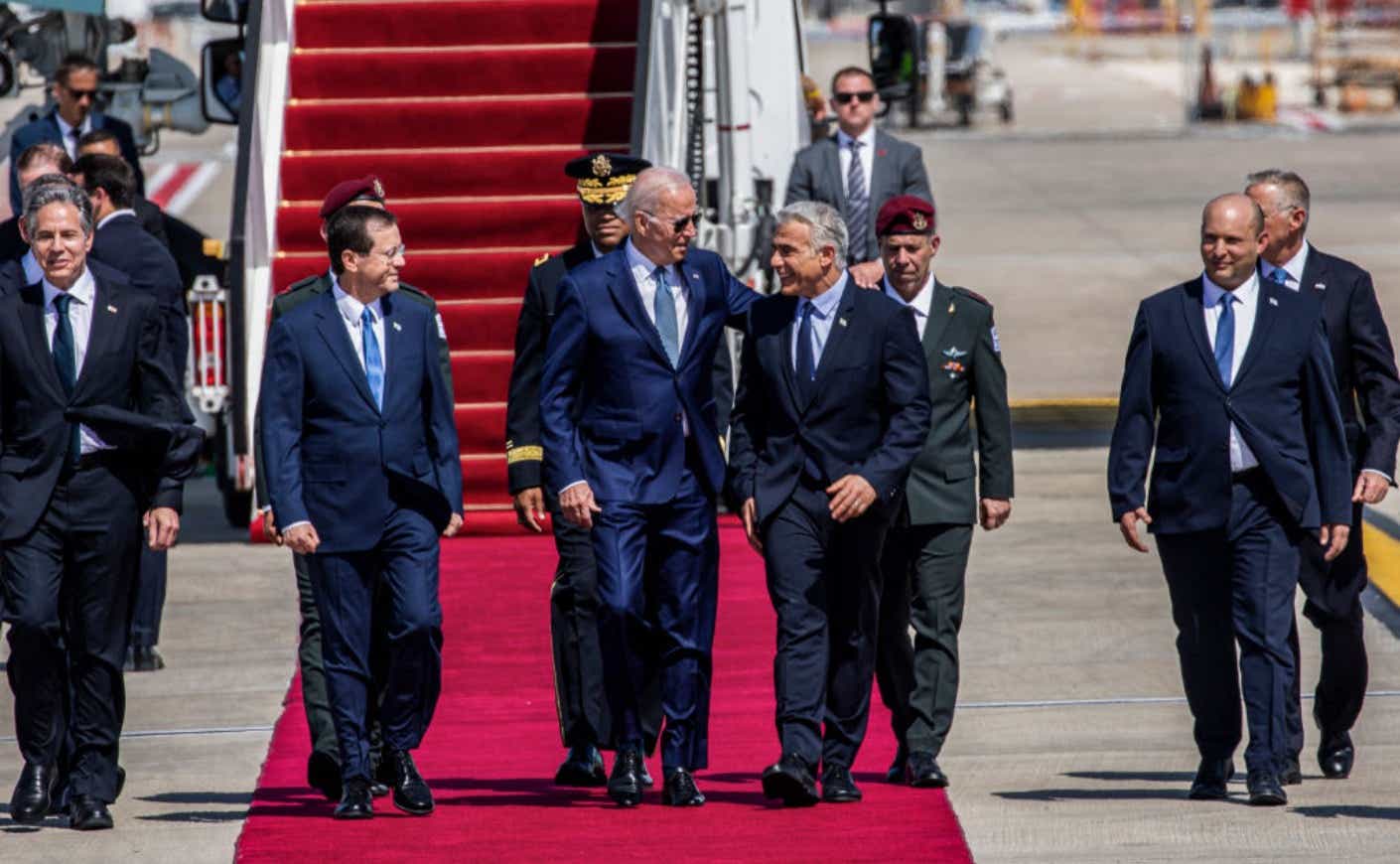President Biden is visiting the Middle East in what could be his challenging diplomatic test yet. The commander-in-chief landed in Israel on Wednesday, and he’s expected to make his way to the Israeli-occupied West Bank to meet Palestinian leadership before heading off to Saudi Arabia.
But his first presidential trip to the region has been met with controversy from the get-go: Biden's getting heat for meeting with the Saudis, given that the country has a long history of human rights violations. This record was punctuated by the brutal murder of U.S.-based journalist Jamal Khashoggi in 2018 — something U.S. intelligence has determined was approved by Saudi Crown Prince Mohammed bin Salman himself.
This is hardly the only challenge the president will be facing, though. Biden’s trip has also already been compounded by the spread of the highly contagious BA.5 variant, which has become the dominant strain of Covid-19 in the U.S. To address concerns, Biden is taking some precautions, including minimizing contact and wearing a mask.
Here’s what we know about the president's four-day visit.
Why is Biden visiting the Middle East?
Broadly speaking, Biden is trying to reassert U.S. influence and improve stability in the region. This includes the possibility of brokering a key deal to improve relations between Israel and Saudi Arabia, so they can unite with other Middle Eastern countries against Iran to prevent it from becoming a nuclear power.
But the perspectives of revving the Iran nuclear deal, which put restrictions on Iran before it was rescinded under former President Trump, remain dim. As talks languish at a standstill, Iran has made rapid gains in developing its nuclear weapons.
After years of estrangement under the Trump administration, Biden is also looking to improve U.S. ties with Palestine, and he's expected to pitch his support for the eventual creation of an independent Palestinian nation alongside Israel.
Will there be any progress on energy?
The cost of gas — which peaked at around $5 a gallon last month — has been a big problem for Biden ahead of November’s midterm elections. To address this, he will fly directly from Israel to Saudi Arabia, where he’ll prod King Salman (along with oil producers in the region, such as the United Arab Emirates), to pump more crude to help bring down the cost of gas prices and stabilize oil markets that have been disrupted by the war in Ukraine.
But winning over the Saudis is especially key: According to the State Department, Saudi Arabia is “the third leading source of imported oil for the U.S., providing about half a million barrels per day of oil to the U.S. market.”
What does Biden’s visit mean for human rights?
While Biden maintains that human rights are still on the agenda, advocates have accused the president of backtracking on his campaign pledge to make Saudi Arabia a “pariah” following Khashoggi’s killing. In turn, Biden has pushed back by saying his aim is to bring stability in the region and stave off aggression from Russia and China.
"I'm not going to change my view on human rights. But as president of the United States, my job is to bring peace if I can," Biden said. "And that's what I'm going to try to do."
But one issue Biden might not address during his visit is the killing of Palestinian American journalist Shireen Abu Akleh in May. Instead of meeting with her family as they requested, the state department has instead invited them to Washington, D.C.
Ahead of Biden’s visit, Akleh’s relatives expressed outrage, accusing the administration of helping “whitewash” what they called an “extrajudicial killing” by Israeli forces. These remarks suggest that the fallout from her death are far from over.









